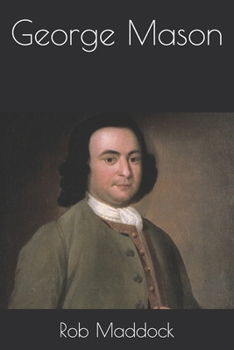George Mason
George Mason, born in 1725, inherited a privileged position within the Virginia gentry, a circumstance that profoundly shaped his education, worldview, and subsequent political trajectory. His family's wealth and social standing afforded him access to educational opportunities unavailable to most colonists, profoundly influencing his intellectual development and ultimately his contributions to the American Revolution and the shaping of the nation. Understanding Mason's early life requires delving into the social structures and educational practices prevalent in 18th-century Virginia. The Mason family occupied a prominent place within Virginia's elite social circles. George's father, Captain George Mason, was a successful planter who owned extensive tracts of land in Fairfax County, accumulating considerable wealth through the cultivation of tobacco and other crops. This economic prosperity provided a stable and comfortable upbringing for young George, allowing him access to tutors and eventually formal education beyond the reach of less affluent families. The family's social standing, moreover, guaranteed connections and networks that would prove invaluable in Mason's later political career. He moved within a circle of influential planters, merchants, and lawyers, fostering relationships that would shape his understanding of politics and his approach to public life.
Format:Paperback
Language:English
ISBN:B0DX6NZRWK
ISBN13:9798310660236
Release Date:February 2025
Publisher:Independently Published
Length:246 Pages
Weight:0.74 lbs.
Dimensions:0.5" x 6.0" x 9.0"
Customer Reviews
0 rating





